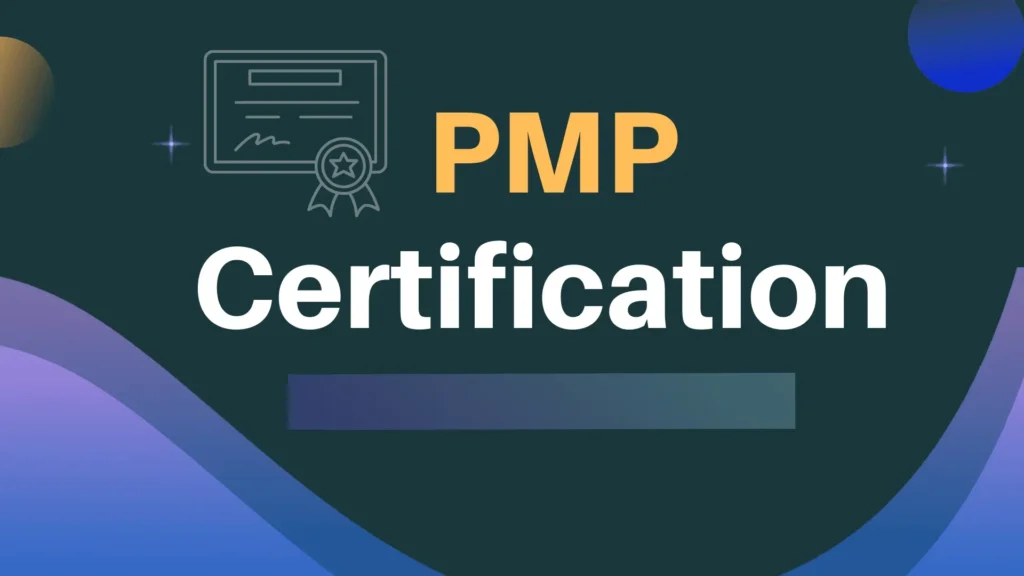
A worldwide recognized credential for project managers, the Project Management Professional (PMP) certification attests to their leadership and project management skills and competence. The highly esteemed and internationally recognized PMP certification has administered by the Project Management Institute (PMI). Prospective project managers frequently enquire about the pmp training and duration required to earn this esteemed qualification. There are multiple steps in the process of becoming a PMP. From fulfilling qualifying requirements to studying for and passing the test. The several phases of the PMP certification courses process will discussed in this article, along with information on the time commitment needed for each one.
-
Eligibility Requirements:
Before exploring the duration required to obtain a PMP certification. It is imperative to comprehend the prerequisites established by the Project Management Institute (PMI). Candidates must meet PMI’s requirements for both professional experience and education. Candidates with a high school education or equivalent must have 60 months of project management experience, while those with a four-year degree must have 36 months of experience.
The Candidates also need to accrue a certain amount of hours spent managing and overseeing projects. The duration of this qualification may vary based on the work experience of the candidate and the intricacy of the projects they have overseen. Before starting the PMP journey, it has advised that you carefully go over the eligibility requirements and evaluate your personal qualifications.
-
Application Process:
Upon fulfilling the eligibility requirements, candidates have required to send an application for evaluation to PMI. Documenting project management experience and educational credentials is part of the application process. The application screening and approval process at PMI usually takes five to ten business days. If more paperwork is needed or the application is chosen at random for an audit, the deadline may extended.
Candidates should make sure they have all necessary materials on hand, including project summaries and the contact details of verifiable project references, in order to speed up the application process. Delays in the review process can prevented by taking the time to draft an accurate and thorough application.
-
Exam Preparation:
The PMP exam preparation process begins as soon as the application has accepted. Depending on the candidate’s study habits, resources, and level of project management knowledge, different candidates need different amounts of time to prepare for exams. Exam preparation should take at least 35 hours, according to PMI.
The amount of time required for efficient exam preparation depends on several factors. Some of the crucial factors have listed below.
- Study Materials: The quality and accessibility of study materials are important. Reference materials, practice tests, and in-depth study guides can all help to speed up the learning process.
- Learning Style: The ways in which people learn vary widely. Self-paced online courses could preferred by some, while group study sessions or in-person instruction might helpful for others. Knowing what kind of learner you are will help you make the most of your study time.
- Employment Commitments: It’s critical to strike a balance between exam preparation and employment obligations. Applicants with demanding work schedules might need to set aside more time over a longer period of time in order to properly prepare.
- Prior Knowledge: Applicants who have a strong background in project management would need less time to prepare than those who are more recently graduated.
In order to guarantee efficient preparation, it has advised to make a study plan and establish reasonable deadlines. A lot of applicants choose to take advantage of online and in-person PMP test prep courses in order to improve their comprehension of PMI’s framework and raise their chances of passing.
-
Exam Scheduling:
Candidates must set a time for their PMP exam after they are ready. Choosing an appropriate day, time, and testing location is the first step in the scheduling procedure. The speed at which candidates arrange their examinations may impacted by the availability of testing locations and time slots.
Prometric, PMI’s official testing partner, runs testing facilities all around the world. Popular testing locations, however, might not always available, particularly during busy hours. To guarantee a desired time window, it is important to plan the exam well in advance.
-
Exam Day:
Candidates should arrive at the testing center well-prepared on the day of the exam. The 200-question, multiple-choice PMP exam is a four-hour test that evaluates a candidate’s understanding and implementation of project management concepts. The exam day time commitment consists of the test duration itself as well as extra time needed for check-in processes.
Immediately following the exam, students receive feedback on how they performed and have informed if they passed or failed. Successful completion of the PMP certification process has ensured for those who pass. There is a 15-day waiting period after failing the exam for individuals who want to retake it.
Conclusion:
In conclusion, depending on unique conditions and decisions taken during the process, the duration required to obtain a PMP certification can vary greatly. Every stage, from fulfilling eligibility requirements to organizing and scheduling exams, calls for considerable thought and preparation.
Although the 35 hours that PMI recommends as a minimum for exam preparation serves as a baseline, applicants should ready to dedicate more time if necessary. A commitment to continuous learning, practical goal-setting, and efficient time management are important elements that might affect how long the PMP certification process takes in total.
In the end, earning a PMP certification can lead to new prospects in the project management industry and is a wise investment in one’s professional growth. By being aware of and managing the required time commitment.
Frequently Asked Question (FAQ)
Some of the frequently asked questions on PMP certification are listed as follows.
Question 1. What is the duration required to qualify for the PMP certification?
Answer: The duration required to qualify for the PMP certification is contingent upon one’s educational background and prior project management experience. You need 36 months of project management experience if you have a four-year degree, and 60 months if you don’t. Make sure you fulfill the required number of specified project hours, which may differ depending on the intricacy and scope of your assignments.
Question 2. What is the typical duration of the PMP application process?
Answer: In general, it takes five to ten business days for PMI to assess and approve your application for the PMP. This period, however, may extended by elements like extra documentation requirements or arbitrary audits. When submitting your application, make sure you have all the project specifics and reference contact information on hand to speed up the process.
Question 3. How long should one study in order to prepare for the PMP exam?
Answer: In response, PMI advises spending at least 35 hours getting ready for the PMP exam. The actual duration, however, may differ depending on your learning style, the study materials you utilize, and how well-versed you are in project management ideas. You may maximize the time you spend preparing by developing an organized study schedule and using high-quality study resources.
Question 4: After finishing my study, how soon can I choose a time for the PMP exam?
Answer: The PMP exam schedule is determined by the availability of testing locations and time periods. Although Prometric, PMI’s official testing partner, has locations all over the world, availability of well-known testing sites may restricted, particularly during busy periods. To guarantee a desired day and time, it is best to set up the exam well in advance.
Question 5. If I fail the PMP exam, is there a waiting period?
Answer: In the event that you fail the PMP exam, there is a 15-day waiting period. Candidates can evaluate their performance, pinpoint areas for development, and sufficiently ready for a retry during this waiting period. Make good use of this opportunity to rectify any shortcomings and raise your chances of success on the subsequent try.
Question 6: How long does the PMP certification process take in total, from eligibility to certification?
Answer: The duration of the PMP certification process varies according to individual characteristics including work commitments, study habits, and project management expertise. It can take several months on average to pass the exam after fulfilling eligibility conditions. The certification process can accelerated by using proactive exam scheduling, efficient time management, and a well-organized study strategy.
Hope this article has provided you with the necessary information regarding the PMP Certification process along with the time it takes to complete it.
